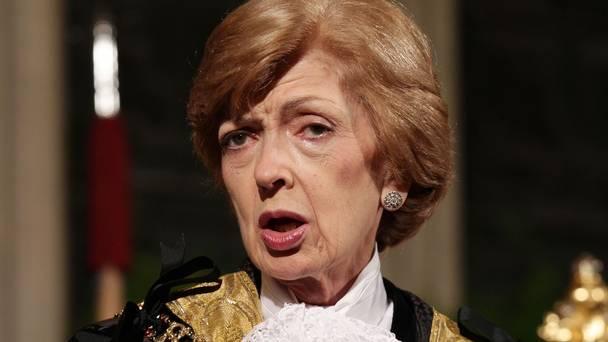|
Abuse victims can't rely on Home Office for fearless probe
By Joan Smith
How could this happen? Almost four months ago the Government announced a wide-ranging inquiry into explosive allegations of historical child abuse. Since then two chairs have been appointed; both have resigned and the inquiry hasn't even started work. On Friday the embarrassment spread to David Cameron when he backed Fiona Woolf, the current Lord Mayor of London, only hours before her resignation as head of the inquiry was announced. She lost the confidence of victims when it was revealed that she is a friend of the former Home Secretary Lord Brittan, who was at the Home Office in the 1980s when, it is alleged, a dossier on child abuse compiled by a Conservative MP went missing. It emerged last week that a letter setting out her contacts with Brittan went through seven drafts. The inquiry needs to be exceptionally wide-ranging, shining a light into just about every area of the Establishment. Yet the Home Office seems not to have realised that the usual approach - announcing an inquiry and picking one of the great and the good to chair it - would be entirely inappropriate in this instance. Woolf's predecessor, Baroness Butler-Sloss, had also faced questions about her connections to a senior political figure in the 1980s; her late brother, Lord Havers, was Attorney General when reports of child sexual abuse were allegedly not examined properly. It was Baroness Butler-Sloss, as it happens, who offered an insight into the process of setting up inquiries when she gave a lecture in 2003. When she was asked who instigated a previous inquiry into child abuse (which she chaired) in the late 1980s, she made this off-the-cuff remark: "I think it was my brother, actually, as Lord Chancellor." Butler-Sloss said her brother suggested a woman judge should chair the inquiry, and she was one of only three female judges at the time. The other two were unavailable, so "I found myself doing it". The fate of that inquiry, which reported in 1988, offers a fascinating piece of background. It came about because a Labour MP in the north-east, Stuart Bell, was outraged by the number of children who had been taken into care in his constituency following diagnoses of child sexual abuse. Bell painted doctors and child protection professionals in Cleveland as fanatics who saw sexual abuse everywhere; he even compared their behaviour to the Salem witch trials. Butler-Sloss was critical of the mechanisms used to take the children into care, but a TV documentary later claimed that nearly three-quarters of the diagnoses were correct. From the standpoint of today, the Cleveland scandal looks rather different. In the past two or three years a series of investigations has finally begun to demolish a persistent and very damaging state of denial about the extent of child sexual abuse in this country. Jimmy Savile, Rotherham, Max Clifford, Rolf Harris, Rochdale, Cyril Smith: the names have become shorthand for scandals involving vulnerable children and teenagers. Suspicions of an Establishment cover-up have been fuelled by the BBC's failure to recognise that Savile was abusing children on an industrial scale. Then there is the case of the Liberal MP Smith, who received a knighthood even though allegations about his abuse of boys were in the public domain in the late-1970s. Since then the staggering extent of child sexual abuse in the Catholic Church has come to light, while the Anglican hierarchy is being rocked by similar scandals. Last week a former Archbishop of York, Lord Hope, resigned as an honorary assistant bishop after a report found "systemic failures" in the Church's response to allegations against a former cathedral dean. But it is not just Establishment figures who benefited from this culture of disbelief. Three months ago the Jay Report into sexual abuse in Rotherham caused shock waves when it suggested that at least 1,400 girls had been victims of rape and sexual abuse. I suddenly remembered sensational headlines from 2001, when it was revealed that a 12-year-old girl had become pregnant in the town. A salacious detail - that five men aged between 16 and 26 were facing DNA tests because she did not know who was the father - put the spotlight on the girl's supposedly "promiscuous" behaviour. Thirteen years later I can't help wondering whether it was an early warning that vulnerable young girls were being targeted by predatory men. Sexual abuse of children has been going on at every level of British society for decades. The victims are crying out for a fearless investigation. But this fiasco of an inquiry suggests that the Home Office, at least, remains in denial.
|
.
Any original material on these pages is copyright © BishopAccountability.org 2004. Reproduce freely with attribution.
